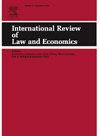Has the European Takeover Bids Directive reached its objectives? The cases of Finland, Germany and Spain
IF 1
3区 社会学
Q3 ECONOMICS
引用次数: 0
Abstract
Inspired in the common law tradition, the European Takeover Bids Directive (TBD) aimed to promote an efficient market for corporate control in Europe by facilitating competition among acquirers in EU economies while protecting the rights of minority shareholders of listed companies. After more than 15 years from its transposition into European national regulations, in this paper we investigate whether the main objectives of the Directive have been achieved in three European countries representing the three legal families included under the Civil law regime: Spain, as a country belonging to the French Civil law tradition, Finland, which belongs to the Nordic law tradition and, finally, Germany as a country representing Germanic Civil law tradition. To perform an in-depth analysis, we did not use a sample of takeovers, but a hand-collected database covering all takeovers launched in Finland and Spain over the period 2000–2019, and in Germany over 2002–2019. The results obtained in our analysis lead us to be sceptical about the clear achievement of the objectives intended by the Directive in the three countries analysed. Although more openness to European bidders seems to have been reached in Spain and Finland, there is no evidence of an increase in intra-European cross border takeovers following the TBD’s transposition in any of the countries analysed. Moreover, the premiums paid to minority shareholders (proxy for their higher protection) have remained unchanged in Germany and have been reduced in Spain and Finland.
《欧洲收购投标指令》达到其目标了吗?芬兰、德国和西班牙的案例
受普通法传统的启发,《欧洲收购投标指令》(TBD)旨在通过促进欧盟经济体中收购者之间的竞争,同时保护上市公司少数股东的权利,促进欧洲公司控制的有效市场。在其转变为欧洲国家法规超过15年后,在本文中,我们研究了该指令的主要目标是否已经在三个欧洲国家实现,这些国家代表了民法制度下的三个法律家族:西班牙,作为一个属于法国民法传统的国家,芬兰,属于北欧法律传统,最后是德国,作为一个代表日耳曼民法传统的国家。为了进行深入分析,我们没有使用收购样本,而是使用了一个手工收集的数据库,涵盖了2000年至2019年期间在芬兰和西班牙以及2002年至2019年期间在德国发起的所有收购。在我们的分析中获得的结果使我们对所分析的三个国家中指令所打算的目标的明确实现持怀疑态度。尽管西班牙和芬兰似乎对欧洲竞标者更加开放,但在分析的任何国家中,没有证据表明在TBD转换后欧洲内部跨境收购有所增加。此外,在德国,支付给小股东的溢价(代表他们受到更高的保护)保持不变,在西班牙和芬兰则有所减少。
本文章由计算机程序翻译,如有差异,请以英文原文为准。
求助全文
约1分钟内获得全文
求助全文
来源期刊
CiteScore
2.60
自引率
18.20%
发文量
38
审稿时长
48 days
期刊介绍:
The International Review of Law and Economics provides a forum for interdisciplinary research at the interface of law and economics. IRLE is international in scope and audience and particularly welcomes both theoretical and empirical papers on comparative law and economics, globalization and legal harmonization, and the endogenous emergence of legal institutions, in addition to more traditional legal topics.

 求助内容:
求助内容: 应助结果提醒方式:
应助结果提醒方式:


